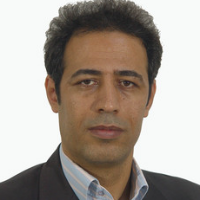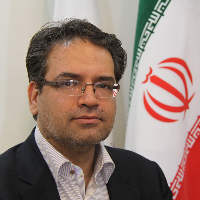Explaining the Concept of Urban Green Network from the Perspective of Different Sciences by Developing a Theoretical Framework
Networking aims to define the principles and regulatory relationships between elements and optimize the performance of urban subsystems. Urban green networks support ecological functions and services that can help planning for the future of cities. The purpose of this research was to explain a conceptual model for the urban green network from the perspective of science according to the various perceptions of the concept of urban green network based on different scientific points of view by inferring and extracting the most important dimensions, approaches, and attitudes related to this field. By using the qualitative method and analyzing the written documents through the same lexical analysis, this research inferred and evaluated different points of view. The information was analyzed using the LCA analysis tool and SPAD software was used to analyze the relationships among the collected information by examining the effective environmental sciences. Using the VOSviewer software, the most important dimensions, approaches, and attitudes were determined. The findings of this research showed that the concept of the urban green network was directly related to the three environmental sciences of urban studies, urban geography, and ecological sciences. These sciences had a significant impact on the formation of a conceptual model to provide a clear picture of this concept in line with urban green infrastructure planning. Urban studies deal with concepts, such as protecting green spaces in cities, creating new spatial forms, etc., in urban geography, paying attention to the ecological principles in cities, meeting the ecological needs of nature and humans, etc., as the effective concepts. Ecological sciences are also mentioned as the most important research fields regarding the concept of urban green network to promote continuity in urban green spaces, create and design optimal corridors, etc. The results of this study showed that the concept of urban green network was a multi-research field. It appeared as a field supported by the urban planning method by means of decision-making tools, capable of modeling green infrastructure as an urban network formed from natural and semi-natural areas and was in line with the distribution of public services to increase the quality of life, as well as providing ecosystem services and sustainability in cities.
-
Framework for the Organization and Management of Historic Urban Landscapes; A Case Study of Mashhad, Iran
Masoud Alavian Sadr, Mohammadsaeid Izadi*, Pouyan Shahabian, Mohammadhassan Talebian
Athar Journal, -
Game theory, a new approach to solving conflicts between stakeholders in the process of urban regeneration
Zeinab Baziar*, Behzad Malekpour Asl, Mohammadsaeed Izadi
Interdisciplinary studies in architecture and urbanism development, -
The impact of vegetation on urban heat island reduction in the city of Karaj
Fatemeh Ghorbanileylestani, *
Motaleate Shahri, -
Explaining the Role of Spatial Configuration in Promoting Place Attachment in Informal Settlements, (Case study: Nokhodchar neighborhood of Rasht)
Negar Houshangi, *, Mohammadsaeid Izadi
Journal of Geography and Planning,



